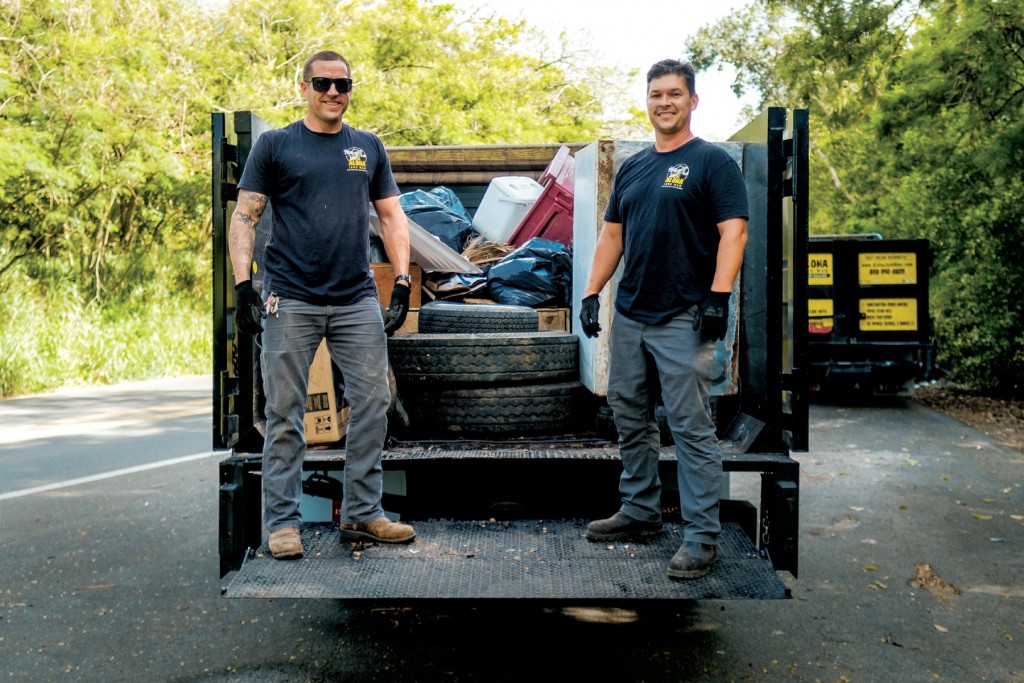My Job: Your Junk is My Mission
Aloha Junk Man removes clutter that people no longer want, from their property or business, and also responds to calls from insurance and remediation companies and real estate agents trying to sell houses that are unpresentable.

NAME: Luke Trefny
AGE: 47
JOB: Co-owner of Aloha Junk Man
BEGINNINGS: Trefny met Matt Beasley in 2019 at a Bible study group that Beasley led at their church. Beasley had founded the company Aloha Junk Man the year before, and was drawn to Trefny’s experience in finance, real estate and the hospitality industry. They are now business partners.
The company removes clutter that people no longer want, from their property or business, and also responds to calls from insurance and remediation companies and real estate agents trying to sell houses that are unpresentable, according to Trefny.
MISSION: “Before this, I was doing business the wrong way,” he says. “God spoke to me and showed me how to do business. There’s another way to do it, where other people benefit. We don’t live at other people’s expense; we actually better people’s lives.
“We see the impact it makes. We get hugs, fan mail and even tears. We have seen people dance when we give them their patio back. It’s not the most glamorous job that either one of us has had, but it’s the job that makes the most difference.”
UNIQUE FINDS: Not everything they find is junk. Trefny says they’ve discovered thousands of dollars’ worth of historic paintings, gold and silver coins, and even a signed Muhammad Ali boxing glove.
Valuable and reusable items are given back to the owner, donated or posted on their Instagram page, @alohajunkman, to be claimed by community members.
“We give stuff away, and even go as far as to drive across the island to donate items. It’s a lot of work but there have been a lot of businesses that have closed their doors from the COVID-19 pandemic, that didn’t do anything wrong, but someone decided that they were not essential enough to stay open. We have had to dismantle a lot of these closed businesses, so we donate the stuff to … other open businesses at zero cost,” Trefny says.
“We love convincing others we can actually better our town by investing in it. If there’s rubbish on the road, we pick it up with the resources we have. There have been a lot of jobs that we have done for no cost.”
DIFFICULT DAY: “We once removed 42 cats from a house before we could clean it out. It was a hoarding situation, which took about 12 to 15 truckloads to remove all of the stuff from a three-bedroom house,” Trefny says.
He says the owner loved the cats but was overwhelmed. “There was maybe over 20 years of stuff that she had piled up, and it was about 3 feet high. We used a pickax to loosen the layers of filth and the shovel to carry it. It took three days and three crews, with two guys per truck.”
WHAT IT TAKES: “There are days where we walked about 7 miles repeatedly to the truck. On one job, we collected about 11,000 pounds of material and loaded it.”
PAY RANGE: “We start our guys at $18 to $20 an hour,” Trefny says.
This interview has been edited for clarity and conciseness.






